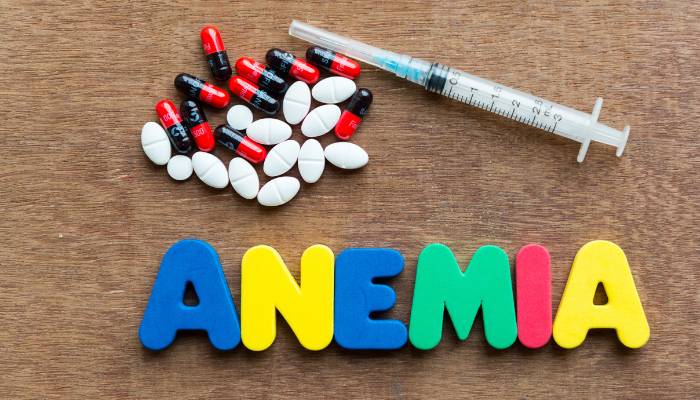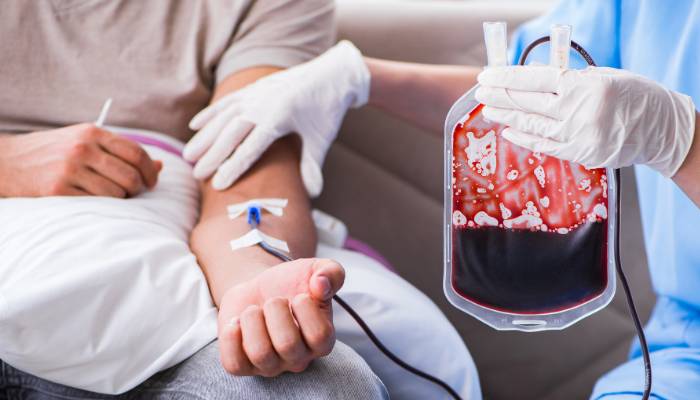
Iron is essential for hemoglobin production, which influences how our body functions. Anemia caused by iron deficiency is a prevalent form of this blood disorder, and symptoms may develop slowly. Here are some relevant bullet points of iron deficiency anemia, what causes it, and potential methods that may help benefit this condition.
How to Recognize Iron Deficiency Anemia
Insufficient iron levels in your body typically go unnoticed initially or potentially not visible. Severely depleted iron levels can lead to anemia, especially in children, adults over sixty-five, pregnant women who are breastfeeding, and individuals with specific medical conditions.
Recognizing the problem as soon as possible can help to manage it before causing further complications.
Here are the common signs of iron deficiency anemia:
- Weakness and fatigue. Loss of strength and feelings of exhaustion after light physical activity.
- Irregular heartbeat and breathing. If you have noticed a sudden shortness of breath or feel your heart beating faster than usual, iron deficiency anemia may be the reason.
- Dizziness and headaches. Lightheaded feelings after simple actions like quickly standing up could indicate iron deficiency.
What Causes Iron Deficiency Anemia?
The reasons behind iron deficiency anemia might include the following:
- Gastrointestinal or urinary tract bleeding. Polyps, ulcers, and other medical conditions could lead to this and the long-term use of NSAIDs.
- Severe blood loss. Either from surgery, injury, or due to heavy menstrual periods.
- Frequent blood tests and donations. Studies have shown that changes in hemoglobin levels can lead to anemia.

How to Treat Iron Deficiency Anemia
The first step is to have your condition diagnosed by a medical professional. Most doctors will conduct a complete blood count test, check your ferritin level, or order additional checks to confirm the severity of your anemia. Here are some insights into how you can treat iron deficiency.
Intravenous Treatments
IV therapies feature administering an iron infusion directly into your bloodstream. An intravenous anemia treatment is available via mobile medical services. A medical professional will administer this beneficial and restorative therapy to your home or any other address.
IV drips are more efficient than supplements because they circumvent the digestive tract and are absorbed directly into the bloodstream, where they can help revitalize iron levels quickly and efficiently. This therapy lasts for several hours, and you can resume your regular activities and schedule after the conclusion of your treatment.
Eat A Well Rounded Diet
A healthy and balanced diet is necessary to prevent and treat iron deficiency. The general concept is to focus on whole foods high in iron. Spinach and other leafy greens are plentiful of this vital mineral, and squash and pumpkin seeds are also iron-rich foods. Those eating meat should focus on beef, chicken, and lamb. Otherwise, you can go for seafood like sardines and clams or beans and eggs for natural sources of iron.
Adding foods rich in vitamin C could also be helpful because this nutrient boosts iron absorption. Berries, oranges, papayas, kiwis, and melons are all packed with vitamin C, as are green and red bell peppers, tomatoes, and cruciferous veggies.
Consume Iron Supplements
You can find iron supplement capsules to ingest orally or as effervescent tablets consumed with water. Iron supplements are most helpful for total and healthy absorption when taken with food. Iron supplements may be beneficial but can be hard on the stomach, and individual results may vary.
Treat Underlying Conditions
Your doctor will perform different tests to determine why your iron deficiency anemia is. Managing and caring for any previous conditions is crucial when avoiding complications. For example, surgery may be necessary to halt bleeding or require antibiotics or additional medications to treat peptic ulcers. Resolving the underlying issue will reduce the risk of iron deficiency reoccurring in the future.

Complications and Long Term Effects
Iron deficiency anemia, if left untreated or severe, can lead to a range of complications and long-term effects, including:
Fatigue and weakness: Iron is crucial for the production of hemoglobin, a protein in red blood cells that carries oxygen throughout the body. When hemoglobin levels are low, the body may struggle to get enough oxygen, leading to feelings of fatigue and weakness.
Cardiovascular complications: Low iron levels can increase the risk of cardiovascular complications such as heart disease and stroke. This is because the heart has to work harder to pump oxygenated blood throughout the body.
Cognitive problems: Iron deficiency anemia has been linked to cognitive problems such as poor memory, difficulty concentrating, and decreased cognitive function.
Pregnancy complications: Pregnant women with iron deficiency anemia are at an increased risk of preterm delivery, low birth weight, and other complications.
Immune system problems: Iron plays a vital role in the proper functioning of the immune system. Low iron levels can impair the immune response, making the body more susceptible to infections.
Restless leg syndrome: Restless leg syndrome is a condition characterized by an irresistible urge to move the legs, particularly at night. Studies have found a strong link between iron deficiency anemia and restless leg syndrome.
Delayed growth and development in children: Iron is crucial for the growth and development of children. Low iron levels can lead to delayed growth and development, including delays in cognitive and motor skills.
It is important to note that many of these complications can be prevented or minimized through proper diagnosis and treatment of iron deficiency anemia. This underscores the importance of seeking medical advice if you suspect you may have iron deficiency anemia or are experiencing any of the symptoms associated with it.
Final Thoughts
If you suspect you have anemia caused by iron deficiency, consult a medical professional as soon as possible to help arrange blood tests to confirm and isolate your ideal treatment. It’s important not to self-diagnose anemia because overwhelming your body with iron could result in undesired side effects or iron overload. We can all work to prevent iron deficiency by focusing on a healthy lifestyle and consuming foods rich in iron and vitamin C to boost its absorption.

Lifebing is driven by an unrelenting passion for promoting health and well-being, our team is wholly committed to curating exceptional content and immersive experiences.
